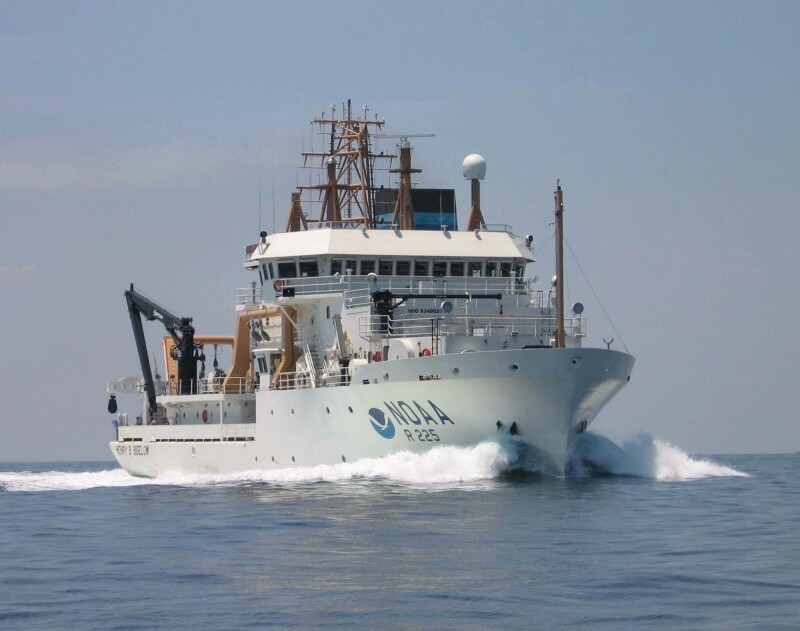Mitigating the effect of offshore wind development on federal scientific fisheries surveys requires a major increase in funding, potentially more than $120 million a year, according to a new request to Congress from industry advocates.
The Seafood Harvesters of America and Responsible Offshore Development Alliance say that money is needed to help offset the impacts of offshore on federal fisheries surveys – a cornerstone of the National Oceanic and Atmospheric Administration’s fisheries management and conservation mission.
In a March 17 letter to a Congressional appropriations subcomittee, the groups recommend a price tag at $2 million a year for each of 31 fishery surveys managed by the National Marine Fisheries Service that will be affected by offshore wind projects, plus $10 million more for each of six NMFS regional science centers to address issues with wind energy developments.
The letter thanks Congress for its fiscal year 2023 funding that added $16.5 million across NMFS to address offshore wind issues – including $7 million for impacts on fisheries survey work.
Calling that funding “a good start,” the letter still warns that it is still far too low given the rapid pace of offshore wind leasing by the Bureau of Ocean Energy Management.
“There are 31 surveys that will be impacted across the country and NMFS representatives have identified a $2 million cost per survey per year to address OSW impacts,” the letter states. “Without this funding, Congress will hamstring the agency’s ability to develop and test new survey methodologies, calibrate previous decades’ survey data with new survey methods, implement new survey methodologies, and communicate these changes with (regional fishery) councils and fishery stakeholders.”
The letter also calls for $10 million for each of the six fishery science centers “to expand cooperative research efforts in order to give the commercial fishing industry opportunities to address the significant data gaps in fisheries surveys and data collection that will arise due to OSW.”
NMFS cooperative research projects give fishermen and processors a role in science “while building trust in management outcomes and decisions,” the letter notes. “Additionally, cooperative research helps address existing and emerging data gaps, rebuilds trust between managers and the seafood industry, helps incorporate local and traditional knowledge in science, and encourages buy-in to management decisions.”
More cooperative research will help understanding fisheries behavior and operational needs in relation to offshore wind – and can provide new work for fishermen who are displaced from fishing grounds by offshore wind projects. With their smaller vessels commercial fishermen can help NMFS collect data around wind turbine arrays that the agency’s larger research vessels cannot access, the groups say.
“The scale of OSW proposed in the U.S. is staggering. So too, are the financial resources already invested and required to develop effective strategies for its deployment,” the letter notes. “Other federal agencies have received billions of dollars to support OSW permitting and transmission needs; we feel the development of appropriate environmental impact mitigation strategies are equally important, if not more so.”
It’s critical to get additional funding now, “given the pace of OSW and the lack of consideration of development on fisheries impacts,” the letter concludes. “Securing funding after surveys are impacted will be too late.”
“BOEM should first be prioritizing avoiding long standing federal fisheries surveys and to the extent they cannot be avoided, we need robust investments in mitigating the impacts of offshore wind development on these surveys,” said Leigh Habegger, executive director of Seafood Harvesters of America, after releasing a text of its joint letter with RODA.
“Our request is simply an initial step in providing NOAA with the resources it needs to adequately and appropriately mitigate the impacts of offshore wind development on critical federal fisheries surveys.”







